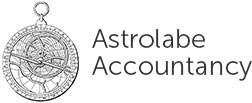Superannuation Guarantee amnesty
 The government has finally succeeded in introducing a Superannuation Guarantee amnesty. This amnesty allows employers to disclose and pay previously unpaid Super Guarantee Charge for their employees, without the usual penalties. The amnesty period is open until 7 September 2020.
The government has finally succeeded in introducing a Superannuation Guarantee amnesty. This amnesty allows employers to disclose and pay previously unpaid Super Guarantee Charge for their employees, without the usual penalties. The amnesty period is open until 7 September 2020.
First, here is some background to the amnesty.
What is Superannuation Guarantee?
The government requires employers to provide for their employees’ retirement, by contributing to their superannuation accounts. This applies to all employees, with only two exceptions:
- Employees for calendar months in which you pay them less than $450 before tax for the month.
- Employees under age 18 for weeks in which they work less than 30 hours.
For all other employees you must pay super, regardless of whether:
- they are full-time, part-time or casual
- they are company directors
- the employees are family members
- they are currently receiving super benefits (such as a transition-to-retirement pension)
- they are temporary residents such as backpackers or working holiday makers
The amount of super you must contribute for employees is currently 9.5% of their ordinary time earnings. This includes most payments to employees except overtime. You must pay employees’ super at least quarterly, by the 28th day after the end of each quarter. You must make payment into a complying super fund. Most employees can choose their own fund.
For more details about your Superannuation Guarantee obligations see Super for employers on the ATO website.
Super Guarantee Charge
Super Guarantee Charge is a tax that you have to pay if you do not comply with the super guarantee requirements. This may be because you did not pay the full amount, or you paid it too late.
In these cases you need to lodge a Superannuation guarantee charge statement. In this form you declare and calculate the amount of Super Guarantee Charge payable. Super Guarantee Charge is made up of:
- The underpaid superannuation, currently equal to 9.5% of the employee’s gross wages. Note that this is a larger amount than ordinary time earnings as it includes payments for overtime.
- Interest on the underpaid amounts, currently calculated at 10%
- An administrative fee of $20 per employee per quarter.
- A penalty of up to 200% if the ATO discovers the underpayment as result of an audit.
No part of the Super Guarantee Charge is tax deductible. This may be the biggest penalty for late payment of superannuation.
The Super Guarantee Charge must be paid within a month after the due date for the original superannuation obligation. Otherwise you may be liable for late lodgement penalties and interest as well.
For more information see The Super Guarantee Charge on the ATO website.
Superannuation guarantee amnesty
The Super Guarantee Charge is quite punitive, yet largely depended on employers voluntarily lodging Superannuation guarantee charge statements. The ATO did not have the means to check whether superannuation was being paid unless employees complained. As a result, unpaid superannuation stands at an estimated $2.9 billion!
The government is seeking to remedy this by providing a one-off opportunity for employers to catch up on their unpaid superannuation. It applies to unpaid and underpaid superannuation from 1 July 1992 to 31 March 2018.
Under the amnesty, employers who disclose and pay previously unpaid Super Guarantee Charge will avoid much of the penalties. While the interest component is still payable, the administrative fee and the penalty will not apply. In addition, payments of Super Guarantee Charge will be tax-deductible until 7 September 2020.
For more information see Superannuation guarantee amnesty on the ATO website.
Moving forward
With the Single Touch Payroll system and increased reporting by superannuation funds, the tax office is now in a position to police the Super Guarantee Charge effectively.
We strongly encourage employers who have been remiss in paying employee super to take advantage of this amnesty. It is vitally important to ensure that your systems and cashflow are adequate so that underpayments do not occur again. The government is unlikely to need to provide an amnesty again to enforce the Super Guarantee Charge in the future.
